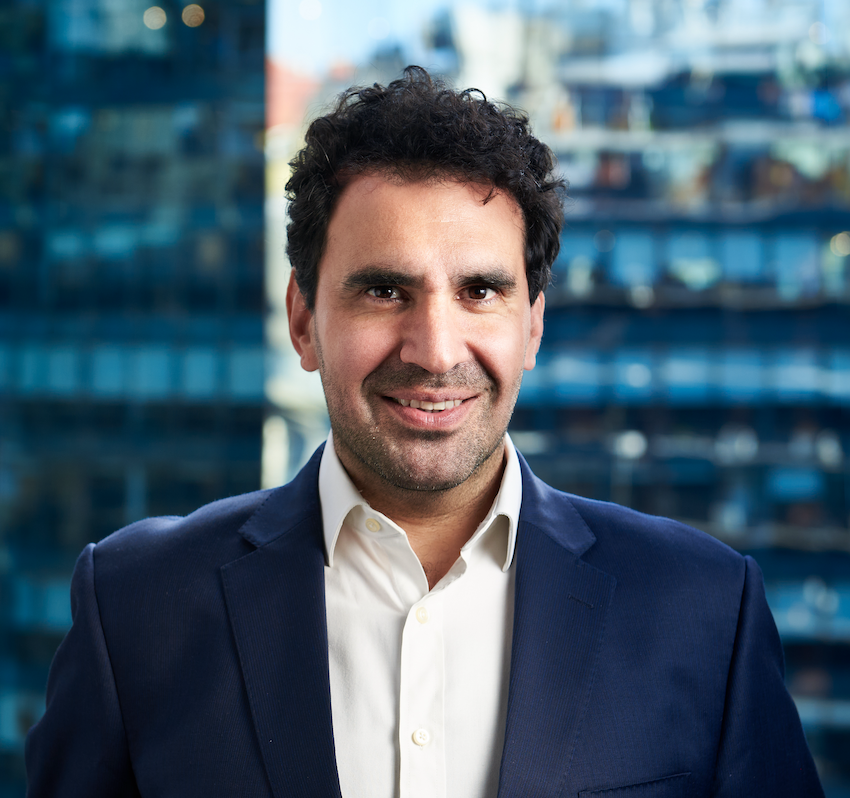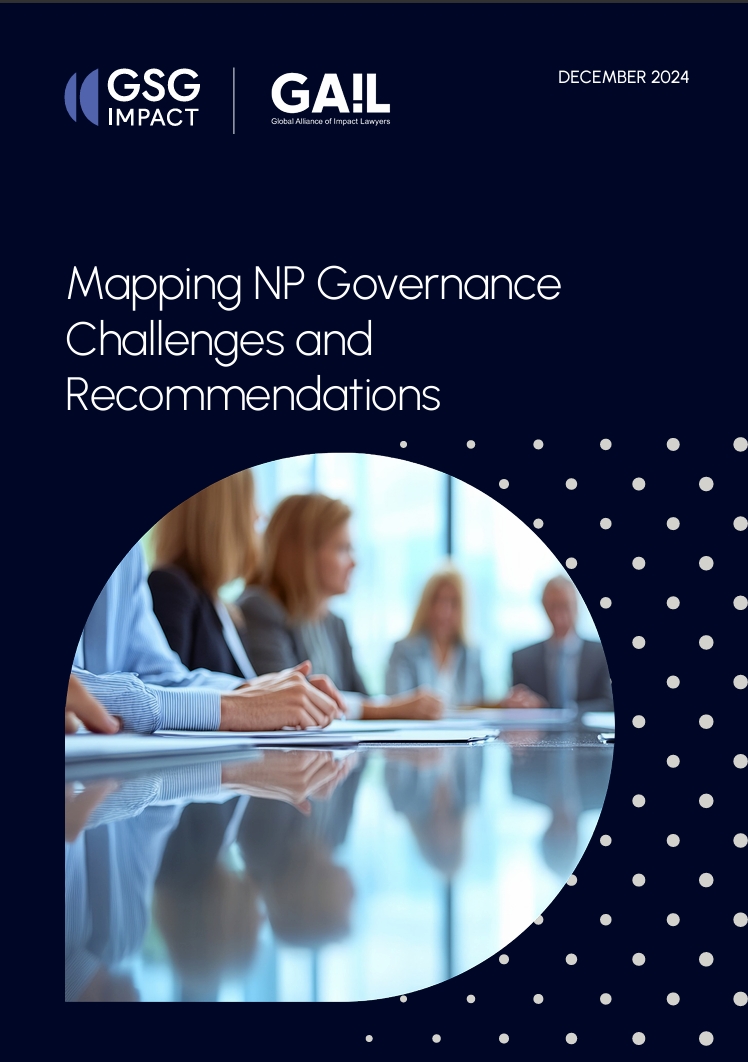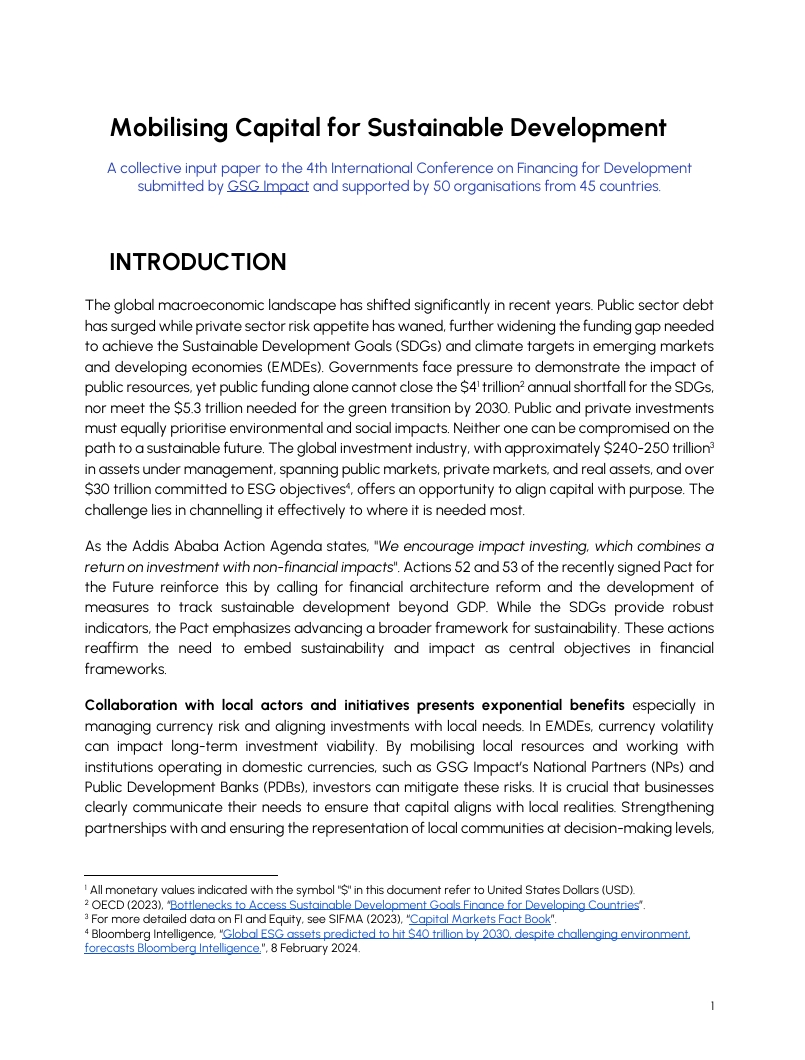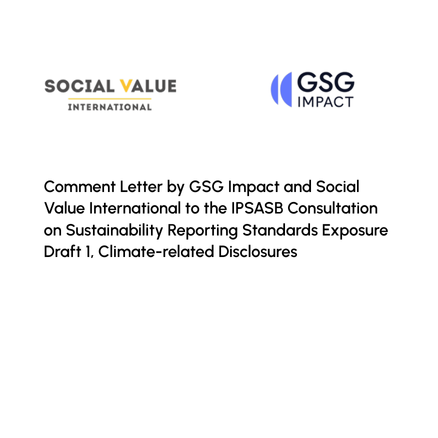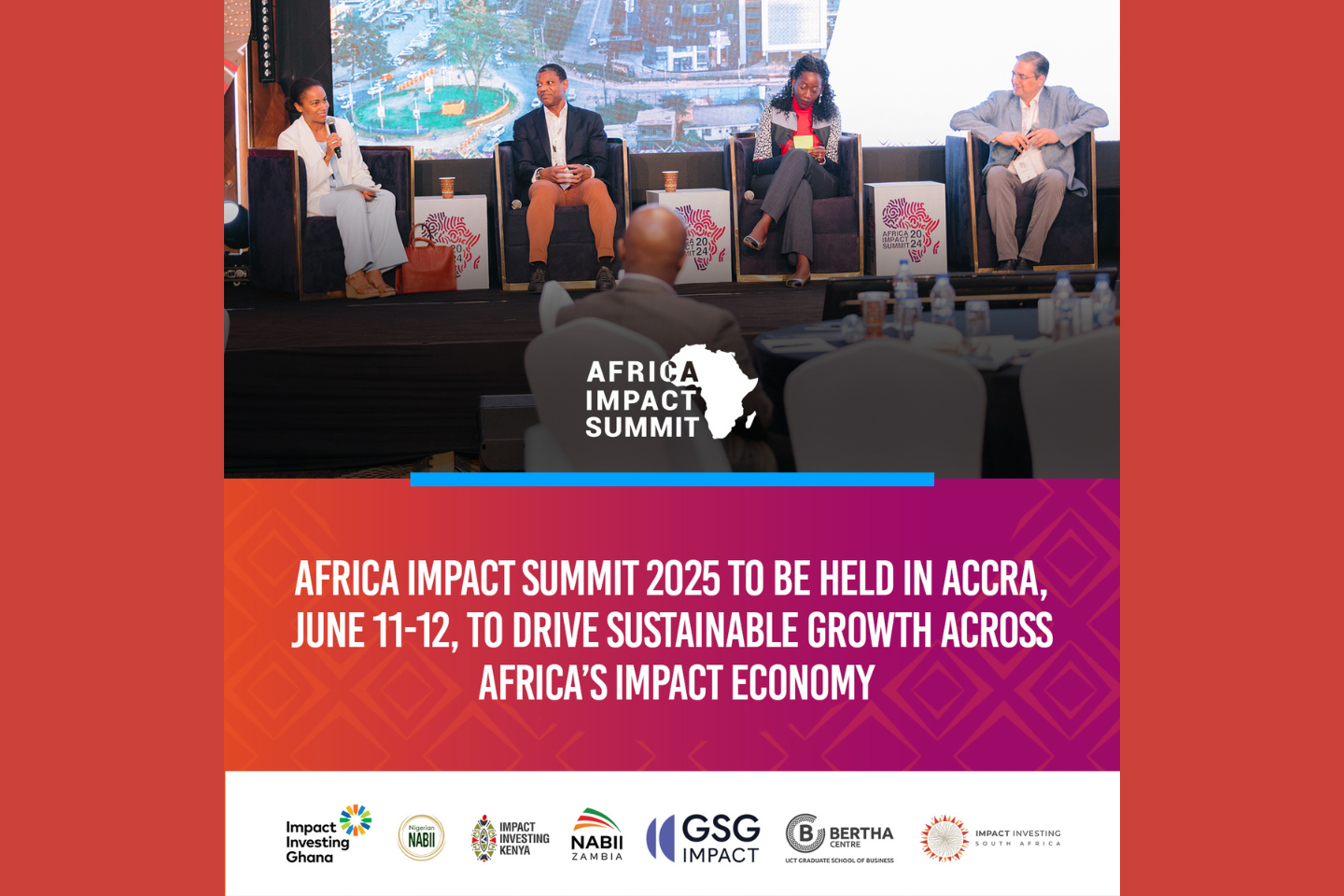
Over 1 billion people live in slums and informal settlements across the Global South, without formal access to potable water, sewage or electricity, amongst other deficits. Despite the severe social and environmental effects of urban informality, it remains invisible to the impact community as an issue area.

Over 1 billion people live in slums and informal settlements across the Global South, without formal access to potable water, sewage or electricity

Urban informality must be placed at the centre of the global impact agenda if we are to deliver the SDGs by 2030

Government budgets alone are not enough to fund the necessary improvements to informal settlements - given total investment needs estimated at US$6 trillion globally

There is sufficient private capital to invest in urban programmes that target the most vulnerable. Mobilising this capital will require multi stakeholder collaboration and financial structures than can align incentives
In this document, we make the case for prioritising urban informality as a core area for impact and development, and we emphasise the contribution this would make to achieving the UN SDGs. We are calling on all stakeholders to no longer view slums and their inhabitants as a problem only, by acknowledging the potential in transforming urban liabilities into assets.
We estimate that there is a total investment need of about $6 trillion for slum upgrading globally, which is a sizeable gap from the limited amount of capital that currently goes into related programmes. We also explain why this is a particular area in which supply of capital does not guarantee its own demand. Finally, we propose a basic framework for the design of thematic investment vehicles that can help break the deadlock and reach scale.


